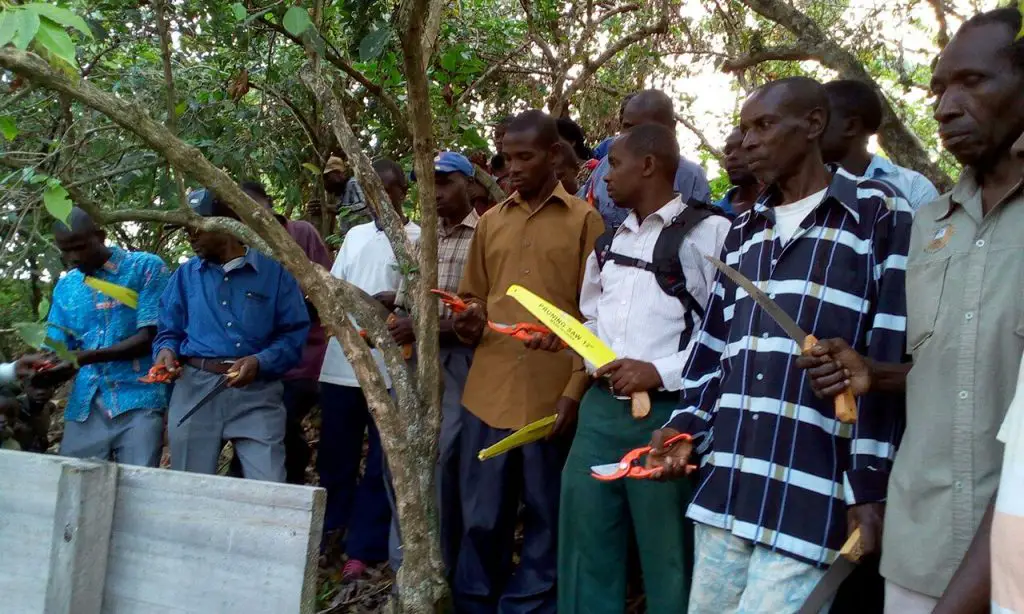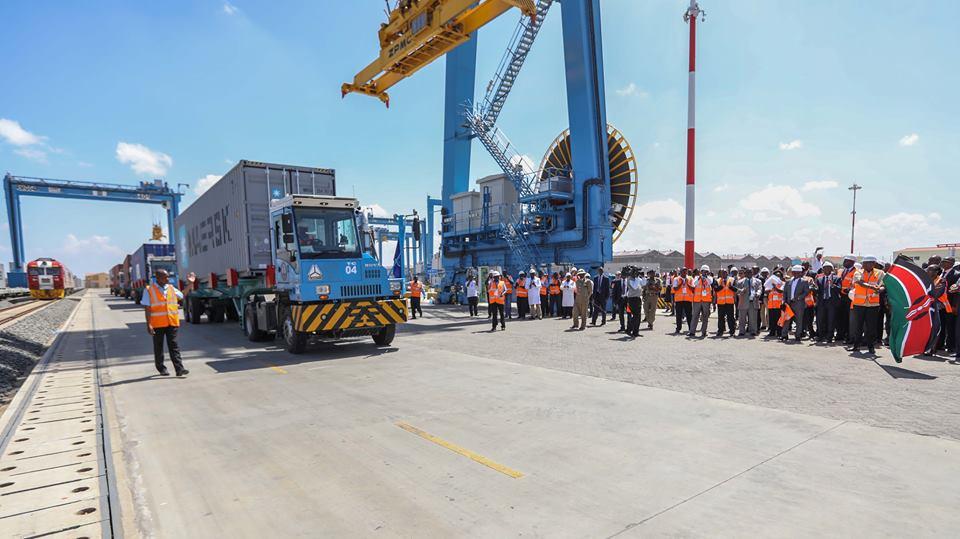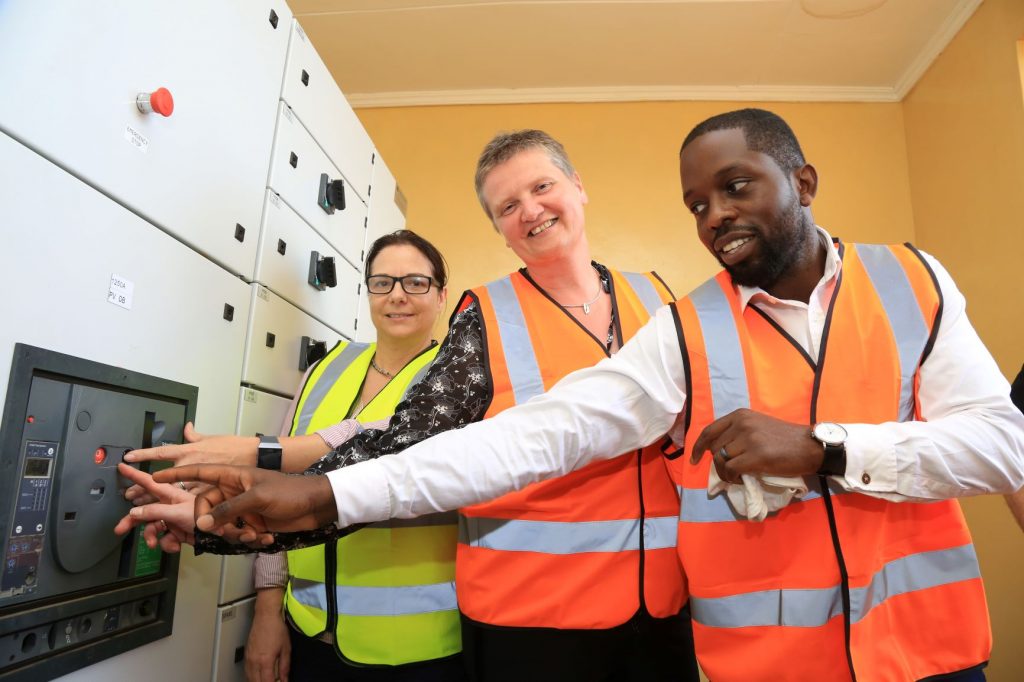- Abu Dhabi radiates optimism as over 300 startups join AIM Congress 2024
- TLcom Capital Raises $154 million in Funding to Boost Its African Growth
- Africa’s $824Bn debt, resource-backed opaque loans slowing growth — AfDB
- LB Investment brings $1.2 trillion portfolio display to AIM Congress spotlight
- AmCham Summit kicks off, setting course for robust future of US-East Africa trade ties
- Why the UN is raising the red flag on the UK-Rwanda asylum treaty
- Portugal’s Galp Energia projects 10 billion barrels in Namibia’s new oil find
- Wärtsilä Energy offers tips on how Africa can navigate energy transition and grid reliability
Month: May 2019
The World Bank Board of Directors has approved a US$750 million (Ksh75.9 billion) International Development Association (IDA) credit for Kenya, in the latest move by the global lender to channel funds to the East Africa State.
A member of the World Bank Group headquartered in Washington D.C, IDA is an international financial institution which offers concessional loans and grants to the world’s poorest developing countries
The loan comes amid concerns over the country’s ballooning public debt which crossed the Ksh5.1 trillion (US$50.4 billion) mark in September 2018, with possibilities of going Ksh5.6 trillion (US$55.4 billion by close of the year.
READ:Tough times: Kenya piles Kshs 2.5 billion debt in a day
On Tuesday, Central Bank of Kenya (CBK) governor Patrick Njoroge said the country’s headroom for new borrowing has shrunk since it tapped the US$2.1 billion Eurobond earlier this month, which part of it has gone towards debt refinancing.…
As part of the country’s National Agricultural Export Development Board (NAEB)’s strategies to produce quantity and quality coffee, Rwanda aims at planting 34,000 new coffee trees by the year 2024.…
When Kenya’s Capital Markets Authority announced it will launch its regulations for a sandbox, industry players knew the regulator was going into uncharted waters, at least on the continent. Though this kind of concept has been tested and approved in other global markets, Kenya was taking the mantle in leading the continent in helping fintechs experiment and innovate in a controlled environment.
Fintechs have played a great role in providing access to finance for Africa but they have been hindered by lack of certainty with some failing to make it to the next year. However, they remain key to financial inclusivity in the continent that has long been left behind n this realm.
A regulatory sandbox is a framework set up by a financial sector regulator to allow small scale, live testing of innovations by private firms in a controlled environment under the regulator’s supervision. The concept, which was developed …
Diamond Trust Bank (DTB) has posted a 9.4 per cent growth in net profit for the first quarter ended March, buoyed by returns from investment in government securities and non-funded revenue.
The Nairobi Securities Exchange (NSE) listed lender closed the period with a Ksh1.97 billion profit after tax compared to Ksh1.80 billion posted last year.
The Group defied a tough operating environment to build customer deposits to Ksh275 billion, while the asset base grew to Ksh370 billion, entrenching the DTB’s position as a leading tier one bank in Kenya and the wider East African region.
On the back of an industry-wide subdued growth in loans, the group’s investment in Treasury Bills and Treasury Bonds grew to Ksh124 billion at the end of March 2019, compared to Ksh118 billion at the same time last year.
DTB’s non- performing loan book declined marginally to Ksh12.4 billion, from Ksh13.2 billion a year earlier, …
The Kenyan government has once again gone to the market with its unique mobile phone based bond M-Akiba, as it seeks to raise funds to support infrastructure development in the country.
In a second issue this year, the National Treasury has re-opened the retail infrastructure bond as targeting to raise Ksh250 million (US$2.47million).
The bond was opened to the public on Monday, May 27, and will run up to Friday June 7, 2019. The value date shall be on Monday, June 10, 2019 and will start trading at the NSE on Tuesday, June 11, 2019, the government has said.
“Following the successful uptake of M-Akiba Retail Infrastructure Bond in March which attracted 79 per cent subscription rate, The National Treasury, the Central Depository and Settlement Corporation and the Nairobi Securities Exchange have jointly reopened the M-Akiba Retail Infrastructure Bond Issue No MAB/2/2017/03 to offer Kenyans another opportunity to invest in …
The Kenyan government has now resorted to vetting of importers and exporters of consolidated cargo in the latest move to curb tax evasion.
This comes in the wake of recent piling of cargo at the Nairobi Inland Container Deport (ICD) as authorities opted for 100 per cent verification on containers with consolidated goods.
This is on suspicion of under-declaration and misdeclaration by traders in a tax evasion racket that has been denying the government revenues amounting to billions of shillings.
Rogue state officials have been accused of colluding with unscrupulous traders to facilitate false declarations, denying the Kenya Revenue Authority (KRA) requisite taxes, such as import duty, a move said to have led to a loss of over Ksh100 billion(US$987.8million) in the recent past.
They are also said to allow in counterfeits into the market and through the transit route into the hinterland in exchange for kickbacks.
The verification process …
Camel milk is commonly consumed in the United Arab Emirates, Chad and Mongolia with camel milk products ranging from chocolate bars to baby formula and ice cream.…
The Kenya Revenue Authority (KRA) has received a go-ahead to collect more than Ksh2.7billion (US$26.7 million) worth of monthly taxes on withholding tax on winnings from Sportpesa.
This follows a ruling by Milimani Commercial Courts Chief Magistrate, Peter Gesora, allowing KRA to collect withholding taxes on winnings from betting games on the Sportpesa platform among others, that have been failing to withhold tax on winnings.
The landmark ruling delivered on Thursday, May 23, 2019 arose from a 2014 suit filed by a Mr. Benson Irungu against Sportpesa Ltd trading as Pevans East Africa.
READ:Why Kenya will not collect taxes from sports betting
The suit sought to stop Sportpesa from deducting and remitting taxes arising from Mr Irungu’s and any other person’s winnings.
In his ruling last Thursday, Chief Magistrate Gesora while dismissing Mr Irungu’s case noted that the nature of sports betting, winnings are unpredictable and a player cannot …
In yet another review of the country’s macroeconomics, Kenya’s Central Bank has held the benchmark lending rate at 9 per cent, meaning banks in the country will continue giving loans with a maximum interest rate of 13 per cent.
This is under the Banking Act which caps lending rates at four percentage points above the CBK rate.
The decision was reached on Monday by CBK’s decision making organ-Monetary Policy Committee (MPC), which meets every two months to review the outcome of its previous policy decisions and recent economic developments.
The meeting was held against a backdrop of domestic macroeconomic stability, sustained optimism on the economic growth prospects, improving weather conditions in most parts of the country and increased uncertainties in the global financial markets.
This is the sixth time the MPC is retaining the benchmark rate at nine per cent after bringing it down from 9.5 per cent in July …
Unilever Tea Kenya and CrossBoundary Energy have commissioned a 619 kWp solar plant at the company’s Kericho tea factory. This is the first on-site solar installation for a Unilever facility in Sub-Saharan Africa, and it brings the company closer to its goal of sourcing 100% of total energy from renewables by 2030.
With the addition of solar PV to its existing hydroelectric and biomass resources, over 90% of Unilever Tea Kenya’s energy needs will now be met with clean energy. At the same time, Unilever will save money on its electricity costs. Over 15 years the solar project will avert nearly 10,000 tonnes of carbon emissions.
CrossBoundary Energy sells power from the solar plant to Unilever via an innovative 15-year power purchase agreement. Only now that the system’s installation and testing is complete will Unilever begin paying for solar electricity, and CrossBoundary Energy will continue to manage and finance future …














